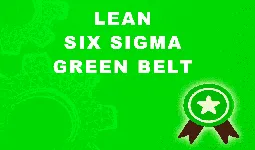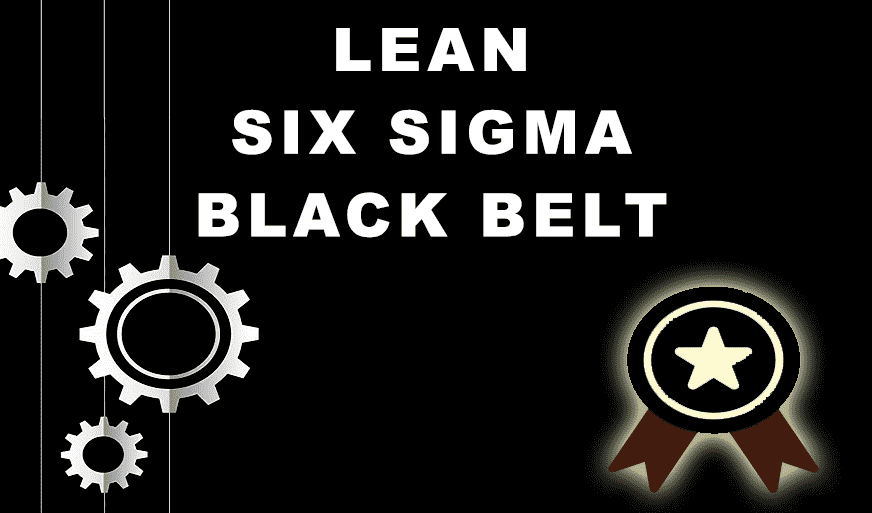Quality Management Interview Questions 2024
-
 By Nandini
By Nandini - Published on Sep 21 2022

Table of Contents
Introduction
Most Popular Quality Management Interview Questions In 2024
Quality management is a sphere gaining a lot of importance in project management as well as in other global industries. Its importance has become evident in recent times when industries emphasize maintaining a proper quality standard for their services and products.
To secure the position of project management professional, a candidate needs to have in-depth knowledge about quality management interview questions. These questions help candidates secure a good job in the market.
There are many types of quality management interview questions that determine the caliber and skills of any person with the desire to be quality management professional. This extensive process of evaluation is necessary as quality management professionals should have quick thinking and a grip over quality management fundamentals. Key job responsibilities make this job tough and crucial for companies to function properly.
The person applying for the job needs to see the entire quality management process from a wider perspective. They have to face quality management interview questions before becoming eligible for a job.
If they clear the interview, they can pursue a great career as a quality management professional. Clearing the interview is the first step towards a sound future.
Interviewers ask different types of quality management interview questions to candidates. Some of the questions are conceptual and others are perspective-oriented. Each question has an important role to play in assessing the candidate. Conceptual questions mostly aim at testing the theoretical knowledge of the candidate whereas perspective-oriented questions aim at testing practical knowledge.
Set 1- Quality Management Interview Questions
What are the key responsibilities of a candidate working in the quality control process?
Oversight is the key area of focus for any quality control candidate. The candidates have the responsibility to define and describe quality controlling events in detail to minimize oversight. A quality assurance check is the other key responsibility that the candidate needs to manage methodically.
Quality management is one of the most professional fields in the world. What has been your greatest take or achievement in the field of quality management?
This question is not tricky at all. Interviewers consider a candidate who has commendable achievements in the field of quality processing and management.
If the candidate has decreased the product recall by surpassing quality inspection and quality control by a large margin or they have improved the PR or customer satisfaction through their work, they are appreciated by any company they like.
Quality managers need to have many qualities in order to be fruitful in their roles. Which quality do you think in the most priced and valued position in a data managing professional?
Here the candidate can give many answers according to their own preference. But, the most common and industrially correct answers include the assessment efficiency of details, diligence, and organizational enhancer as key attributes of any quality manager.
The delegation has improved many sectors including quality management. What is your take on this statement concerning quality management?
The interviewers try to find a person who is a team player and understands the essence of team spirit. Candidates should ideally answer this question by focusing on how delegation helps in personal development and how team spirit can yield better results.
The candidate should also state how they can guide their juniors or newcomers in understanding their future responsibilities and decision-making dilemma they might face as quality management professionals and project managers.
They should also emphasize teaching the subordinates the importance of their decisions and what effect these decisions have on your project.
Human error is very natural and can occur either out of negligence or mistakes. What is the mistake you did in your project management career and how did you tackle the problem?
The candidate should emphasize the importance of paying attention to details and duties. The project management documentation process calls for a lot of attention as any minor mistake could lead to customer dissatisfaction or even serious lawsuits being filed against the organization.
Significant losses might also occur which can be financially burdening for the organization if project management mistakes are not tackled. Interviewers look for a candidate who learns from their mistakes and uses them to mold the future.
The most ideal stories project management that a candidate should say in order to get the interviewers interested in hiring them should be related to a blunder that they could correct after realizing their mistake.
It shouldn’t have caused any harm to the company. The candidate should also include the valuable lesson they understood from the incident and how they put it into their work in the later stages of their career.
They might also ask more context-related questions other than personal questions. These include preferences and conceptual questions.
Set 2- Quality Management Interview Questions
There are many quality assurance techniques in the market. Which one do you prefer and what made you choose it?
This question aims at reflecting the candidate’s grip over quality management processes. The candidate should mention the quality assurance techniques tool he/she used and their experience with that particular tool. Here is an example of how to answer it.
“My experience has been very pleasant using my tool of choice. I and my entire team relied on the Waterfall model as we were sure that it yields our results. It helped us design the ideal test plan as it made the flaws evident. We listed these defects and moved toward the actual processes.
As far as I am concerned, the Scrum board is my favorite way to organize tasks. FogBugz is my tool of choice to identify bugs in the processes.
This identifies the defects very efficiently and helps in quality assurance techniques in project management. I feel it is the ideal combination to have an agile approach to managing any production process while preserving the values of traditional best practices.
This helps in collecting data, identifying problems, and fixing them easily while the project is in progress with short sprints and regular checks.”
What's the most ideal way to select a proper testing tool for your quality management practices?
Here, the interviewers aren’t interested to know the advantages of the tool as there are many viable options in the market. The candidate must start with why they prefer a certain tool over others and why it is a reasonable option over other tools. It reflects the working style of the candidate as well. Here is an answer that could be viable.
“There are many tools in the market and I wouldn’t let my selection decide the fate of any project. The type of project and the approach needed to complete it successfully will be my choosing factor.
For an instance, if m team opts to follow the traditional approach, the tool we use will be different than that of an Agile approach. We will first need to identify all the factors driving the project management forward.
Then, these requirements will be assessed in order to give the ideal tool that will be most fruitful for the project. If I were to make the final choice of the tool, I will take factors like training time, prices, and benefits of the tool into consideration.
There are passive factors like the silence needed to operate it which will also be a matter of concern for me. I will never take the decision all by myself. The involvement of the team is a necessary factor in making a good choice. The choice favored the most by my team will be my choice.”
There are many factors where you need to act wisely before taking a step. What if you find out that your team is continuing to work on a product and testing it even after finding out defects?
The interviewer shall not entertain any answers starting abruptly with unnecessary statements. The candidate should have a step-wise approach to this answer. Making it clear that you will go step by step can be fruitful.
As the candidate is put in the shoes of a QA manager, all the standards are set by the candidate. So, in some cases, testing after the correction of an error is not necessary. An example of such an answer is given below.
“I would like to have a methodical approach and not rush into the matter directly. I will state and emphasize the conditions required to be fulfilled for the acceptance of the product. Then, I will closely examine the test cases.
I might apply Boundary Value Analysis and equivalence class partitioning in some cases where I feel more tests are required. The defective test cases shall also be assessed and tested. Lastly, I will determine the testing criteria stopping point and update it to meet the tests.”
Skills are very important for any person to be a successful QA manager. What are the most desirable interpersonal skills which an ideal QA manager needs?
The best answer to this question expected by the interviewer should revolve around leadership quality. Motivating a team to perform exceptionally and beyond the estimated capability is the quality of a true leader.
Anything related to this would be a great answer. The hiring interviewer would appreciate an answer with in-depth knowledge about the roles and responsibilities of a leader. This is an example of an answer which can satisfy the interviewer.
“A good team manager is a leader who is always there to solve any arising conflict in the team. He should be a good communicator and give every team member a day before taking any decision. They should be good motivators and should work towards achieving a better result with the team. If any staff conflicts arise, he/she should be able to solve them diplomatically.”
The client review is the final review. If any client finds out a major defect in the product and gets upset, what can you do to fix the issue and stop it from ever happening again?
These types of questions are often asked by the interviewers to see how you handle real-life situations. The reputation of the company is at stake in case of error. The customers and clients shouldn’t lose their faith in the company. So, handling upset clients is a key attribute of QA managers which they should do promptly.
The candidate should take a methodical approach to this question and show every aspect carefully. Use the STAR method to show how your previous experience has molded your answer if possible. Here is an example of an answer which will be appreciated by the QA manager interviewer.
“I would make the client feel wanted by asking them questions which would allow them to explain to me the gravity of the situation and help him let out his concerns. Then, I will take detailed notes about the problems and work towards fixing them.
I will admit our mistakes and discuss how we are going to resolve it. After resolving the issue, I’ll catch up with the customer again to make sure that they are happy with the changes. I’ll also discuss with my team the issues the client faced and try our best to implement the prevention measure to stop any such issues from arising in any project management.”
These particular types of quality management interview questions are related to knowledge of the subjects associated with Quality management.
What do you think a Quality Management plan is?
This is the document that enables the performance of the environment to work around the project. It is a formal document that consists of the entire management system. It can also be defined as the ‘Umbrella document’. It exhibits the quality structure by taking many factors into consideration. These factors are:
- Organizational structure
- Staff and management working procedure.
- The positions occupied and their powers
- Interface list according to the planning of a project
- Implementation
- Environmental activity assessment
Can you list down the quality management benefits?
There are many benefits of quality management. Here are some crucial things in which quality management improves.
- Internal quality improvement- This reduces things like rework, scrap reduction, and nonconformities
- External quality improvement- This brings forth customer satisfaction, returned products, non-conforming product claims, penalty, and warranty claims.
- Production reliability improvement- This includes improvement in the number of breakdowns taking place by decreasing them and decreasing the downtime as well.
- Time performance improvement- This includes a shorter time for the product to be released, on-time delivery, quick dispatch, and other factors.
- Cost on poor quality reduction- This includes processes like scrap, rework, and many more processes that can put the extracted components into use.
This is one of the quality management interview questions which play a major role in assessing the career value of the candidate.
Set 3 - Quality Management Interview Questions
How do you think you will introduce Quality management in an area where it has not been used?
There is a first time for everything and taking a methodical approach can make things away better. The first step I will take is to encourage the documentation of activities and task processes.
Then, I will make the importance of documentation clear to my team. It shall identify everything associated with the project. Then, I would encourage detecting human and machine errors. The correction of these errors will be my next primary focus.
Then, I shall focus on the identification of wastage factors associated with the process. I would encourage ways to minimize wastage elements like time and material used. Then, each process shall be individually shortlisted and improved.
Is there a difference between quality control and quality assurance? If yes, what is it?
- Quality control is a completely corrective action that aims at correcting flaws in quality whereas quality assurance is a preventive action and systematic action to govern the quality of any product beforehand.
- Quality control helps in checking if all the standards and procedures were performed properly whereas quality assurance is an assurance activity that sets a standard is set to govern the standards and procedures to reach a specific quality target in any project management.
What is the role of SQA Personnel with respect to the testing or the inspection?
Basically, the role of SQA Personnel is to make the testing or inspection processes more visible which would allow the participants to see what they receive and how effective are they along with their concepts.
The following also benefits the management which would allow the management to assess both risk and progress.
Sqa personnel often need to play the role of coaches or facilitators. Sometimes, they are mistaken as the custodians or the owners of the testing process or the inspection, and at times both of them. They are even at times mistaken as the owners of the entire software process.
Which among the both- Walkthroughs or inspections would a candidate choose according to his personal experience?
The choice of the following will completely depend on the history of the company in which the candidate wishes to work. The following will also depend on the quality of the software. In most of the cases, candidates have been found choosing “Walkthroughs”.
There lies a formal procedure in some cases which states the necessity of both walkthroughs and inspections. In these cases, the first thing the candidate needs to do is to check the reasons why the previous attempts of the candidates have failed.
The candidates find that inspections that were done previously had checked the wrong details at the wrong times. This is also done by making use of the wrong criteria and using the wrong level of detail.
What are the most crucial changes which can occur in software quality assurance in the last 5 to 10 years? How can the main mandate of Sqa be defined these days?
Gathering awareness, as well as the importance of public domain models like SEI SW SSM, SPICE, and BOOTSTRAP, are some of the changes that might occur in software quality assurance. Some other changes such as the changing nature of software development along with the developments based on models and components also occur.
The need of connecting software quality assurance of different ages and sources is also increasing rapidly. Software developments can never be considered complete developments. Topics like quality and project management were always shown to the candidates in such a manner as if they glorified pure development.
After facing these kinds of changes, Sqa needs to be both holistic and reductionist which means Sqa needs to check things from a closed view as well as a broad view. Checking the features of the entire system fits into the business requirements of the organization.
This is one of the most confusing quality management interview questions.
How can the discovery method be defined?
The discovery method can be defined as a well-planned activity to evaluate and make an overview of a program or process or outcome. The following also properly analyzes the complete operation.
The output of a good method of discovery is that it provides particular information that is reliable and it provides sufficient proof to support any action or conclusion at the system level or the individual level.
For the candidate to produce systematic and relevant data, the discovery methods should feature certain core features in them.
Is quality control reactive in approach?
No, quality control is not reactive in approach. The quality of a product is built into the product from the initial design stage. The SPC charts indicate the following before the candidates lose control of the processes.
Proper action can be taken at that point in time when product management, as well as development, is in control. This needs to be done before defective products are manufactured.
What are the most crucial Allies of Sqa within a company?
Sqa can be considered as a form of risk management. This is the reason why the following is potentially allied with senior management which lay emphasis on risk management. A lot of risks can be found in the field of software such as insurance.
These kinds of risks are mostly found with financial consequences. Hence, the main is considered as the financial director.
In a lot of organizations, we can see risks coming at times. The risks are often seen as having customer service implications. This is the reason the main allies are present in marketing roles.
At times, Sqa fails in making allies during the practice due to being bogged down in software and technical issues along with some insignificance. The Sqa finds methods to deal with the following effects.
These were some of the important quality management interview questions which are likely to be asked.
Top Quality Management Training Courses and Six Sigma Certifications
We, Sprintzeal, are an Accredited Training Partner of the International Association for Six Sigma Certifications (IASSC). To know about six sigma certifications and to find the six sigma courses that fit your career goals, chat with our course expert
Suggested Read: Quality Assurance vs Quality Control
Subscribe to our Newsletters
Popular Programs
Trending Posts
The Lean Continuous Improvement Model: A Comprehensive Guide
Last updated on Nov 7 2023
Certified Scrum Product Owner: Job Roles And Responsibilities
Last updated on Feb 17 2025
Six Sigma Certification – Everything you Need to Know About Getting Certified
Last updated on Nov 8 2023
Essential Components of a Quality Management System
Last updated on Aug 19 2024
Who Needs ISO 9001 Certification and Why?
Last updated on Aug 29 2024
A Deep Dive into the Power of Lean Continuous Improvement Process
Last updated on Nov 14 2023
Categories
- Agile Management 54
- AI and Machine Learning 42
- Big Data 53
- Business Management 51
- Cloud Computing 44
- Digital Marketing 56
- Information Security 8
- IT Hardware and Networking 17
- IT Security 103
- IT Service Management 29
- Leadership and Management 1
- Microsoft Program 2
- Other 43
- Programming Language 31
- Project Management 162
- Quality Management 75
- Risk Management 8
- Workplace Skill Building 2
Trending Now
Top Career benefits of Lean Six Sigma Green Belt
ArticleLean methodology, Six Sigma methodology and Lean Six Sigma Explained
ArticleSix Sigma Black Belt Certification – Value and Career Benefits in 2024
ArticlePareto Chart in Six Sigma - Explained
ArticleSix Sigma Certification Guide - A Professional's Guide
ArticleSix Sigma Yellow Belt Certification - Six Sigma for Beginners
ArticleQuality Control Explained – Six Sigma
ArticleTotal Quality Management - A Complete Guide for Beginners
ArticleQuality Assurance in Six Sigma Explained
ArticleQuality Assurance vs Quality Control
ArticleSix Sigma Certification – Everything you Need to Know About Getting Certified
ArticleLean Six Sigma on Resume for Rewarding Career Benefits
ArticleQuality Manager Interview Questions and Answers for 2025
ebookService Delivery Manager Interview Questions and Answers (With Examples)
ArticleSix Sigma Interview Questions and Answers 2024
ArticleHow to become a Quality Analyst
ArticleA Supply Chain Management Guide to Mastering Logistics End to End
ArticleSenior Quality Manager Interview Questions and Answers 2024
ArticleTop 30 Quality Analyst Interview Questions and Answers 2025
ArticleFinancial Analyst Interview Questions and Answers 2024
ArticleRisk Manager Interview Questions and Answers 2024
ArticleCompliance Manager Interview Questions and Answers 2024
ArticleOperation Manager Interview Questions and Answers
Article5 Lean Continuous Improvement Principles to Supercharge Your Operations
ArticleHow to Become a Quality Manager - Career, Job Scope and Certifications
ArticleEssential Components of a Quality Management System
ArticleSix Sigma Certifications - Reasons Why you Should Get Them
ArticleTop Qualities of a Good Manager and a Leader
ArticleLearn about Statistical Process Control (SPC) and its top applications
ArticleCost of Poor Quality - A Detailed Guide
ArticleImplementing 5S Methodology for Better Work Efficiency
ArticleWhat Is Lean Management?
ArticleBest Six Sigma Books in 2024
ArticleLeadership vs Management - The Ultimate Guide
ArticleQuality Assurance Plan - Six Steps To Quality Assurance Plan
ArticleOperational Planning Creation, Key Elements and its Benefits
ArticleA Complete Guide to Product Life Cycle Stages 2025
ArticleSix Sigma tools for DMAIC Phases
ArticleWhat Is Lean Manufacturing?- An Overview
ArticleThe Lean Continuous Improvement Model: A Comprehensive Guide
ArticleDMAIC vs. DMADV: Key Differences and Choosing the Right Six Sigma Methodology
ArticleA Deep Dive into the Power of Lean Continuous Improvement Process
ArticleLean Continuous Improvement Methods for Business Excellence
ArticleIntroduction to Lean Manufacturing- Definitions, Framework, and More
ArticleUnderstanding the Key Principles of Lean Manufacturing
ArticleSecret to Unlock Organizational Excellence: Stages of Continuous Improvement
ArticleLean Continuous Improvement: A Detailed Guide to Mastering Organizational Quality
ArticleLean Waste Management: The Ultimate Guide 2023
ArticleA Deep Dive into Lean Continuous Improvement Tools
Article8 Wastes of Lean - Strategies for Identification and Elimination
ArticleThe Ultimate Guide to Lean Manufacturing
ArticleUnderstanding Lean Manufacturing's Pros and Cons
ArticleLean Waste Reduction Strategies: Boost Efficiency and Cut Costs
ArticleTop 10 Lean Manufacturing Tools for Optimal Productivity
ArticleBeyond the Basics: Benefits of Lean Continuous Improvement
ArticleWhat are Quality Standards? | A Guide to ISO Standards
Article7 Important Types of Quality Management System
ArticleA Comprehensive Guide to Quality Management Systems
ArticleISO 9001 Standard: Benefits and Certification
ArticleBenefits of QMS Certification for Your Business
ArticleStep-by-Step Implementation Guide to ISO 9001
ArticleThe Ultimate Guide to ISO 9001: Boosting Quality and Certification Success
ArticleQuality Management System – QSM Approaches and Methodologies
ArticleHow to Effectively Implement a Robust Quality Management System?
ArticleExplaining QMS Documentation Structure: Benefits and Best Practices
ArticleWho Needs ISO 9001 Certification and Why?
ArticleKey Elements of ISO 9001:2015 Quality Management System
ArticleOvercoming Common Challenges in ISO 9001 Certification: Tips and Best Practices
ArticleBest Quality Management Tools
ArticleTotal Quality Management (TQM) vs. Six Sigma
ArticleQuality Manager Salary: What Freshers & Experts Earn in 2025
ArticleCertified Scrum Product Owner: Job Roles And Responsibilities
ArticleTips for Continuous Integration Testing: Streamlining QA
Article10 Quality Management Strategies Adopted by Top Managers
Article

















